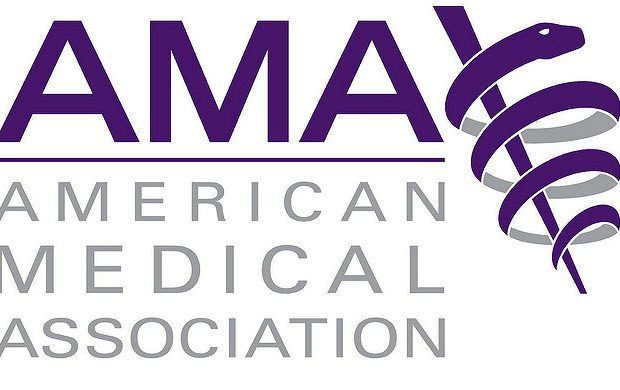American Medical Association & Four Former Surgeons General Affirm There Is No Medically Valid Reason For Military’s Transgender Ban
Groundbreaking Resolution Reflects Consensus that Policy is Outdated While Dismissing Military’s Rationale for Transgender Exclusion
CHICAGO, IL – The American Medical Association (AMA), the nation’s oldest and largest physicians group with nearly 220,000 members, made history today by passing a resolution declaring that “there is no medically valid reason to exclude transgender individuals” from US military service. The voting delegates of the AMA urged that transgender service members be provided with necessary medical care “according to the same medical standards that apply to non-transgender personnel.” The AMA resolution, which concluded that the military’s medical rules governing transgender service are “out of date with respect to medical consensus about gender identity,” was passed by a unanimous vote at the group’s annual meeting in Chicago.
Prior to the vote, four former US Surgeons General issued a statement of support: “We agree with the proposed American Medical Association resolution that there is no medically valid reason to exclude transgender individuals from military service. Transgender service members should, as is the case with all personnel, receive the medical care that they need.” The four former Surgeons General include Dr. Joycelyn Elders, Dr. David Satcher, Dr. Regina Benjamin and Dr. Kenneth Moritsugu (acting).
Members of GLMA: Health Professionals Advancing LGBT Equality (formerly known as the Gay & Lesbian Medical Association), an organization advancing the health needs and concerns of LGBT people, played the lead role in sponsoring the resolution and advocating for a successful vote.
“The AMA has taken the stand that there is no medical justification to exclude transgender people from military service or provide different standards of care to transgender military service members,” said Dr. Brian Hurley, GLMA’s Delegate to the AMA, and a champion of the effort who spoke at the annual meeting in support of the resolution. “I’m proud that the AMA has made an important contribution toward ending transgender military exclusion and advancing transgender equality.”
The AMA vote and statement by the former Surgeons General reflect a professional consensus that the military’s transgender ban lacks a credible medical rationale.
Rear Admiral Alan M. Steinman, USPHS (Ret.), former Coast Guard Director of Health and Safety (equivalent to the Surgeon General of other military branches), testified at the AMA meetings in support of the resolution. Steinman called the AMA resolution “significant” because it “puts the premier medical association in the United States on the side of current medical thinking on this topic. It’s a positive step that the AMA has recognized that transgender men and women have the same ability to function in high-stress military environments as any other qualified service members.”
Paula Neira, a former US Navy Lieutenant and transgender veteran who serves on the Transgender Military Advisory Committee of the Palm Center, which studies sexual minorities in the military, said the AMA resolution “acknowledges that the current exclusionary regulations are unsupported by modern medicine and prevent the military from taking care of our troops by denying them medically necessary care.” The AMA, she added, “has once again taken a stand recognizing that medical standards should reflect science and foster best practices based on evidence.”
Researchers at the Palm Center believe the AMA vote undermines the military’s rationale for firing transgender personnel. Diane Mazur, Vice President of Legal Research at the Palm Center and a retired law professor and former Air Force officer, has conducted extensive research on the transgender regulations. “The military disqualifies transgender personnel without any chance to show fitness for duty,” she said, “and it denies them medical care it would provide to other service members. It’s an arbitrary over-reaction to something the military simply does not understand well.”
The AMA resolution cites a number of Palm Center reports, including a 2014 study by Mazur referenced in an editorial last week by The New York Times on transgender military service. The study, titled Arbitrary and Capricious: Six Inconsistencies Distinguishing Military Medical Policies for Transgender and Non-Transgender Personnel, compares how the military treats transgender and non-transgender individuals in need of comparable or even identical medical treatment (for instance, hormone therapy), and finds that medical regulations affecting transgender personnel are inconsistent with the military’s regulation of medical conditions in general.
Dr. Aaron Belkin, Director of the Palm Center, welcomed today’s resolution. “The military’s transgender exclusion policy is sustained by claims that transgender individuals require more burdensome medical care in the field than other members of the military,” Belkin said. “Citing mounting research to the contrary, the AMA has now joined a chorus of expert voices showing this assertion to be false. The evidence illustrates that the military has no sound reason for this discriminatory policy that bans transgender troops who simply want to serve their country.”
About GLMA
GLMA: Health Professionals Advancing LGBT Equality is the world’s largest and oldest multidisciplinary association of LBGT healthcare professionals and allies dedicated to ensuring healthcare equality for LGBT individuals and healthcare professionals. Founded in 1981, GLMA (formerly known as the Gay & Lesbian Medical Association) achieves its mission by using the expertise of its healthcare professional members, including physicians, advanced practice and other nurses, physician assistants, and mental and behavioral health specialists among many disciplines, in policy, advocacy and education to promote the health and well-being of LGBT people and their families. For more information, see www.glma.org
